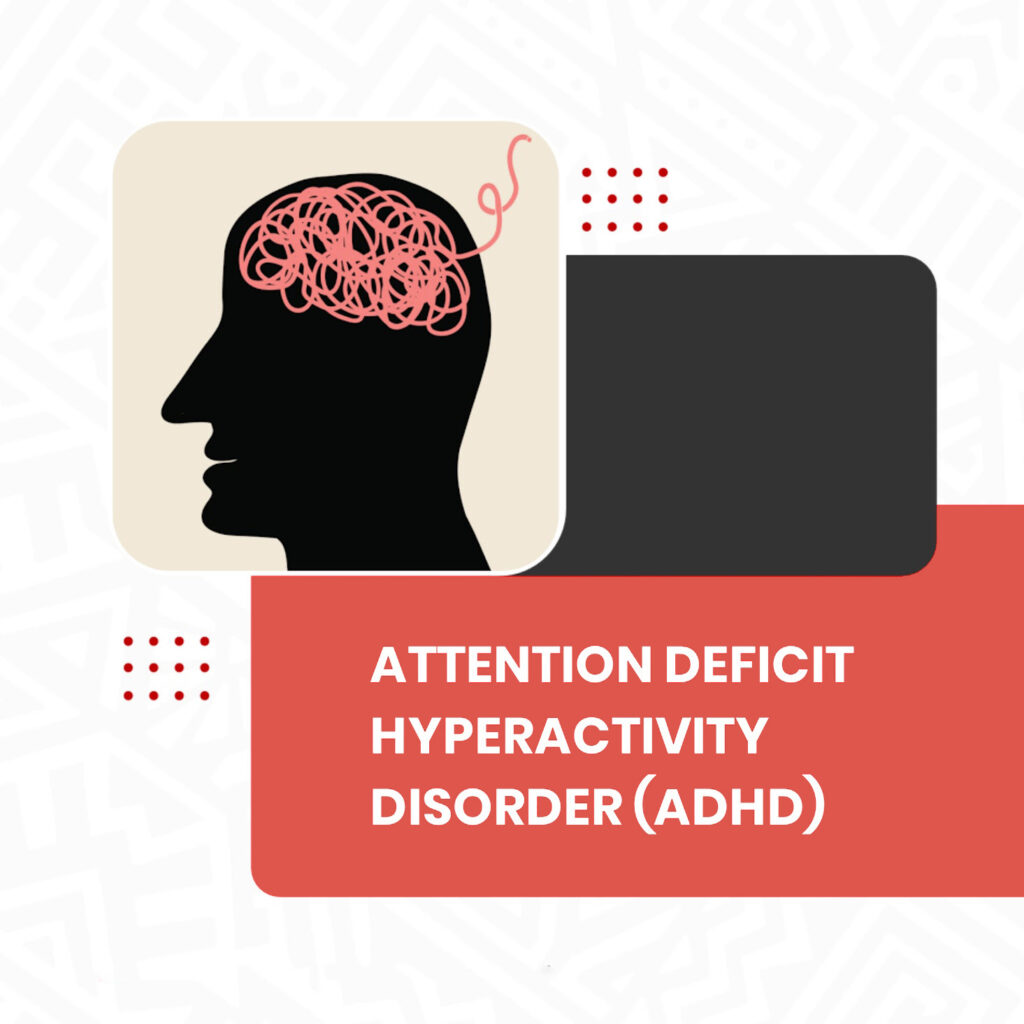About ADH

ADHD attention deficit hyperactivity disorder
ADHD is one of the most common neurodevelopmental disorders of childhood. It is usually first diagnosed in childhood and often lasts into adulthood. Children with ADHD may have trouble paying attention, controlling impulsive behaviors (may act without thinking about what the result will be), or be overly active.
It is normal for children to have trouble focusing and behaving at one time or another. However, children with ADHD do not just grow out of these behaviors. The symptoms continue, can be severe, and can cause difficulty at school, at home, or with friends.
A child with ADHD might:
- daydream a lot
- forget or lose things a lot
- squirm or fidget
- talk too much
- make careless mistakes or take unnecessary risks
- have a hard time resisting temptation
- have trouble taking turns
- have difficulty getting along with others

Types
There are three different ways ADHD presents itself, depending on which types of symptoms are strongest in the individual:

Predominantly Inattentive Presentation : It is hard for the individual to organize or finish a task, to pay attention to details, or to follow instructions or conversations. The person is easily distracted or forgets details of daily routines.
Predominantly Hyperactive-Impulsive Presentation: The person fidgets and talks a lot. It is hard to sit still for long (e.g., for a meal or while doing homework). Smaller children may run, jump or climb constantly. The individual feels restless and has trouble with impulsivity. Someone who is impulsive may interrupt others a lot, grab things from people, or speak at inappropriate times. It is hard for the person to wait their turn or listen to directions. A person with impulsiveness may have more accidents and injuries than others.
Combined Presentation : Symptoms of the above two types are equally present in the person.
Because symptoms can change over time, the presentation may change over time as well.
Causes of ADHD
Scientists are studying cause(s) and risk factors in an effort to find better ways to manage and reduce the chances of a person having ADHD. The cause(s) and risk factors for ADHD are unknown, but current research shows that genetics plays an important role. Recent studies link genetic factors with ADHD.
In addition to genetics, scientists are studying other possible causes and risk factors including:
- Brain injury
- Exposure to environmental risks (e.g., lead) during pregnancy or at a young age
- Alcohol and tobacco use during pregnancy
- Premature delivery
- Low birth weight

Research does not support the popularly held views that ADHD is caused by eating too much sugar, watching too much television, parenting, or social and environmental factors such as poverty or family chaos. Of course, many things, including these, might make symptoms worse, especially in certain people. But the evidence is not strong enough to conclude that they are the main causes of ADHD


There are ongoing difficulties in writing, reading, arithmetic, math, or reasoning skills during the school years. Additionally, children may have trouble remembering facts, thinking clearly, or writing well.

A person’s academic skills appear below the average range. Here, tests must use culturally and linguistically appropriate testing to qualify for a diagnosis. For example, a child with dyslexia will experience a greater degree of reading difficulties and need to expend greater effort to read than those without dyslexia.

Another disorder, such as a developmental or neurological issue, must not better explain the symptoms. For example, a child with ADHD may have trouble reading because of difficulties focusing, not dyslexia.

The difficulties must begin during the school years, not later in life.
Reduced executive function
This makes it harder for a person to plan and coordinate their thoughts and actions. An individual may have issues starting assignments, keeping assignment deadlines, and regulating their emotions.
Hyperactivity
People with ADHD may have issues sitting still, waiting their turn, or remaining quiet. This can make it difficult for them to succeed in the classroom. It may also affect relationships with peers and teachers.
Trouble paying attention
People with ADHD may struggle to remain focused in school, which may affect their ability to learn. Attention difficulties can cause a student to experience challenges in performing well on tests, even when they know the material. This is because distraction prevents them from completing the assessment or understanding the questions.
Disorganization
Disorganization can make it hard for people with ADHD to study or prioritize tasks. It can also cause them to miss deadlines and forget schoolwork, affecting grades.
Impulsivity
ADHD can cause impulsive behavior — this can lead to a student getting into trouble at school. It may also lead them to make questionable decisions, such as not studying or doing homework.
Lack of attention to detail
Students with ADHD may rush through tasks or be unable to pay attention to small details. They might, for example, not notice an extra word in a question or fail to read or understand an academic assignment fully.
Research does not support the popularly held views that ADHD is caused by eating too much sugar, watching too much television, parenting, or social and environmental factors such as poverty or family chaos. Of course, many things, including these, might make symptoms worse, especially in certain people. But the evidence is not strong enough to conclude that they are the main causes of ADHD


Educate parents and teachers about ADHD

Experiment with ADHD management strategies

Consider therapy

Consider medication if the person with ADHD is older than 6 years of age

Embrace a comprehensive treatment approach

Advocate for an individualized education plan
If you have questions about the opportunities available to you in our programs, feel free to send us a message. We will get back to you as soon as possible.
